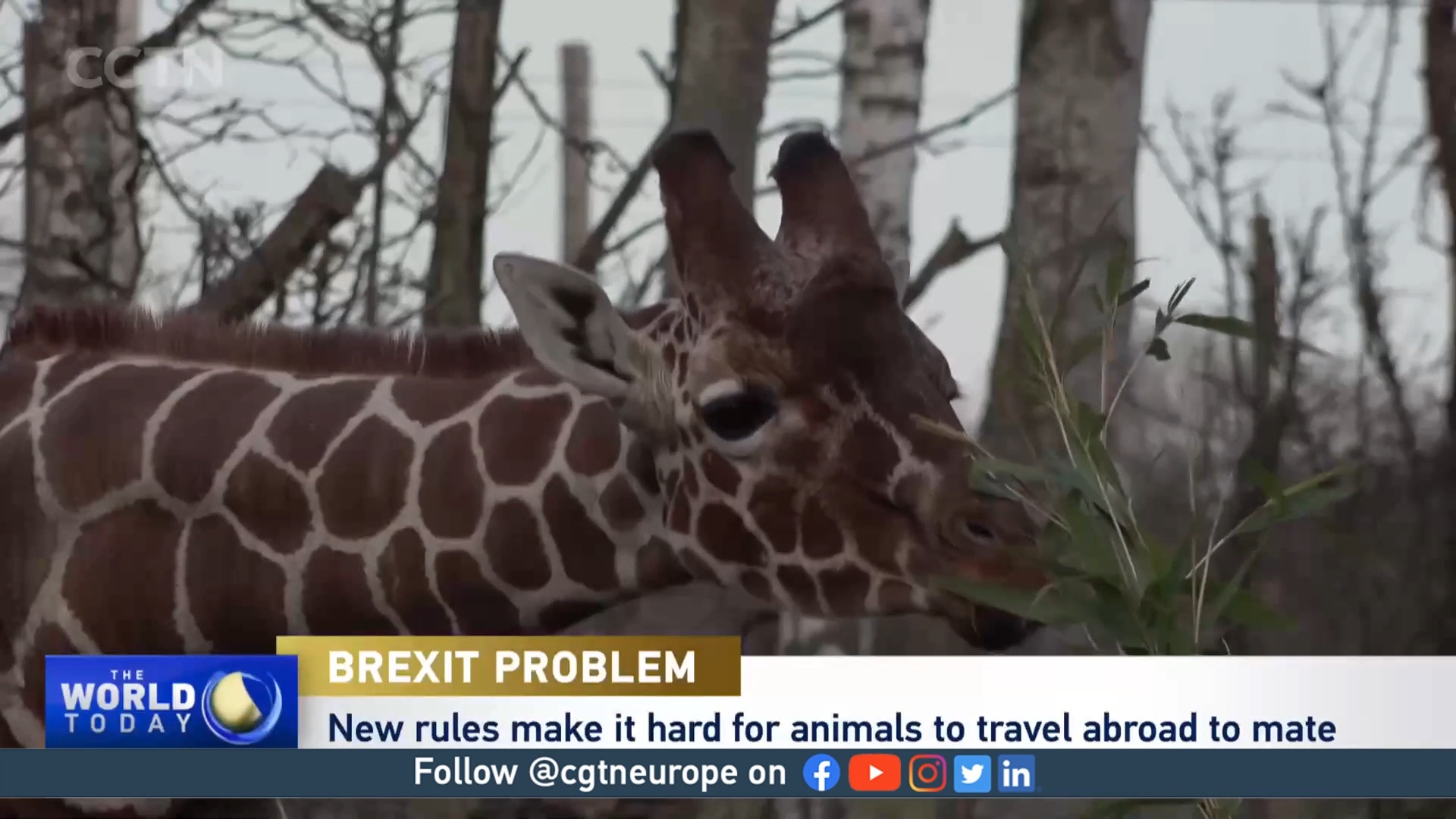03:09

Khari, a four-year-old giraffe, waits patiently in the winter sun at Chessington Zoo, about 20 kilometers outside London.
Khari is a reticulated giraffe, noticeably smaller than his companions in the paddock. Despite the presence of other giraffes, he is also lonely. Khari has been stuck at Chessington since 2021, while the zoo wrestles with the new post-Brexit regulations which is delaying his travel to Czechia to breed.
The British and Irish Association of Zoos and Aquariums (BIAZA) says red tape introduced since Brexit is holding up transfers between the UK and European zoos and putting the process at risk. The numbers of animals traveling is down by 85 percent in the last three years.
"We have no alignment between the heath requirements in Britain and the EU side," says BIAZA spokesman Andy Hall.
"We have only one border control post for zoo animals. We have a case where paperwork is having to be created, because it's just not there. It's not set up for the movement of these zoo animals. In some cases, we can't even get the specialist equipment required to transport an animal such as a giraffe."
The Collections Manager at Chessington Zoo, Sam Whitbread, says the delays could have serious consequences for giraffes like Khari.
"If you prevent them breeding and don't allow them to breed for a certain amount of time, they lose that ability to breed," he says.
"The longer these delays go on, you're starting to reduce the reproductive potential of the entire population, when you're depending on these moves to and from the UK."
There are limited options for giraffe pairings in the UK, so Chessington Zoo expects Khari to be with them for some time yet.
"It's essentially a very small population," adds Whitbread. "Very soon you'd get inbreeding, and the impacts of inbreeding mean that population is no longer viable. So we depend on that wider European population for the longevity of the populations.
"He'll live a good life here with his bachelor herd. What it does mean is that he won't be able to go on and breed, which is the ideal situation, and be able to support the broader population."
Missing chances
A rare Amur leopard at Colchester Zoo has missed out entirely on his chance to meet his ideal mate. He was set to be paired with a female in a French zoo, but long delays meant his prospective partner was forced to find another mate.
"Historically if we did a move, we could easily get an animal to move to the European Union, within, say a month," says Rebecca Moore, Director at Colchester Zoo.
"Now it's taking over a year in some cases, just to get those health requirements agreed, before we can get the paperwork signed off and under way. The problem in his case was that it was taking months and months. Obviously the zoo in France was in a position where they wanted their leopard to arrive."

Giraffes and other animals are missing out on chances to mate. /CGTN
Giraffes and other animals are missing out on chances to mate. /CGTN
BIAZA says fresh negotiations with the European Commission to remove the red tape could help put a better system in place and prevent animals missing out on breeding schedules.
"International breeding programs are a really important conservation tool for zoos," says Andy Hall.
"It's part of the conservation work they do, to conserve endangered species. Some of the species that our members care for are in fact extinct in the wild, and breeding programs are the only way of keeping the species.”
Seventy-five zoos, safari parks and aquariums have signed an open letter calling for government action to smooth over the paperwork. Meanwhile, the single life for Khari the giraffe continues.